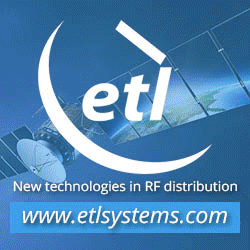ATLAS Expands Scope and
Impact with Latest Launch
March 25, 2021
With the recent launch of a
Soyuz-2.1a rocket from Russia's Baikonur
Cosmodrome, ATLAS Space Operations has grown to
support three brand new missions with its
Freedom™ Platform. Amid the multinational
launch, ATLAS will support Astroscale,
LinaSpace, and Axelspace in some of the most
impressive space-based missions happening today.
The challenge of how to
address space debris has emerged as an urgent
question for the space community to answer.
Through a series of technical demonstrations
that span several months, Astroscale’s ELSA-d
spacecraft, will respond to this question by
demonstrating the core technologies and
capabilities necessary for debris removal and
docking. ATLAS, from its Brewster, WA ground
station, as well as from its new ground station
in Miami, which ATLAS expects to be operational
next quarter, is one of the providers that will
support the communications that power the ELSA-d
spacecraft. Astroscale’s mission will use the
Freedom API, Freedom Pass Server, and ATLAS’
proprietary Flex Scheduler.
The Freedom Pass Server
(FPS) provides ATLAS’ clients with
state-of-the-art networking and Transmission
Control Protocol (TCP) abilities. Through its
mixed modem capability, the FPS enables ATLAS
clients to interface with a diverse range of
modems from different ground sites by
abstracting away the hardware differences. For
this mission, the client's Command and Control
System (C2) is designed for a KRATOS frame
format; here the FPS enables it to execute
Commands and Telemetry using an Amergint
Technologies modem.
“ATLAS’ clients can come
with their existing integrations and the FPS
will translate to any ground site hardware
without the need for additional coding. Adaptive
software can address a lot of these issues, and
talking to the users and people closest to the
problem has allowed us to significantly reduce
costs and integration time for our clients.
ATLAS offers our clients the freedom to get
their data quickly and securely—on their terms,”
said Brad Bode, Chief Technical Officer at
ATLAS.
LinaSpace is also making
use of ATLAS’ global network of ground stations
and Freedom Pass Server. ATLAS will support
LinaSpace through their Ghana ground station, as
well as two new ground stations in Scotland and
New Zealand. LinaSpace specializes in Earth
observation and communications. With this
launch, LinaSpace has delivered an Earth
observation satellite to orbit, with ATLAS
supporting the data transfer process to monitor
and control the mission.
Axelspace, a Tokyo-based
microsatellite company building an Earth
observation constellation, also launched four
satellites from Baikonur. ATLAS will support
their mission from its new ground station in New
Zealand, bringing valuable insights down from
space.










